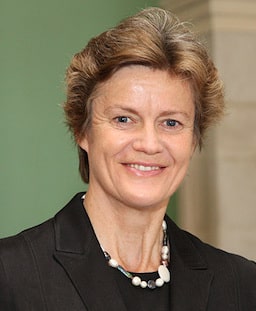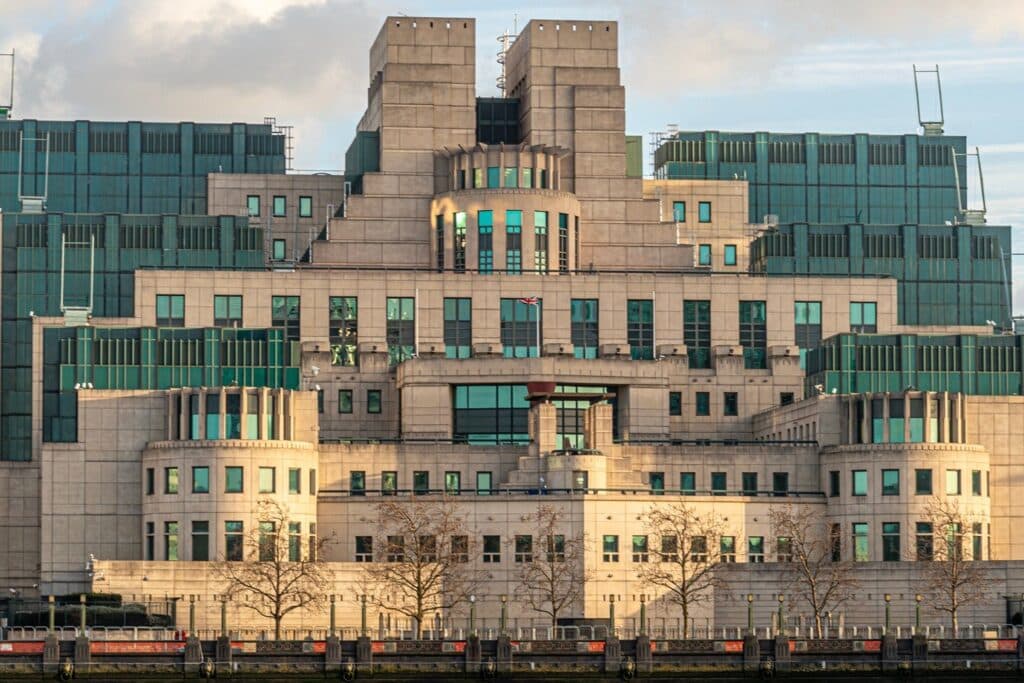The new Chief of Britain’s Secret Intelligence Service (SIS) could be a woman for the first time in history, according to reports that the candidate shortlist consists of three women.
M16, which is also known as SIS, has never had a woman at the helm since it was first formed in 1909. This contrasts with the fictionalised world of James Bond, where actor Judi Dench played M, the film’s head of M16.
The spy world’s glass ceiling has already been shattered by M15, the domestic security service and GCHQ, the electronic and cyber-intelligence agency, which have both had female leaders. However, in recent years, M16 has been working to shed its image as the least diverse of the agencies.
M16’s current boss Sir Richard Moore, 62, is due to stand down from the spy agency later this year after five years in the top job, reported The Sunday Times.
In posts on X in March to mark International Women’s Day, Moore said: “No one gets a job in MI6 except on merit. But we men, as allies, can help our female colleagues achieve the success their talent deserves. We have yet to have a woman as Chief so there’s still a glass ceiling to shatter.”
Among the three female candidates who could replace Moore is Britain’s ambassador to the United Nations, Dame Barbara Woodward. The 63-year-old joined the Foreign Office in 1994 and has worked as international director of the UK Border Agency.
Woodward has also served as Britain’s ambassador to China between 2015 and 2020, where critics dubbed her “Beijing Barbara” for her reluctance to criticise China during her time in that post, the same newspaper reported.

The final decision on the chief appointment will be made by prime minister Sir Keir Starmer, advised by a board of senior government figures.
Whoever steps into M16’s position of chief will have a large undertaking amid the current global political climate. In September last year, Moore and the head of the US foreign intelligence service, Bill Burns, wrote a joint article for the Financial Times, warning that the international world order is “under threat in a way we haven’t seen since the Cold War”.
Moore and Burns pointed particularly at “Russia and Putin’s war of aggression in Ukraine”, saying there is work to be done to “disrupt the reckless campaign of sabotage” across Europe by Russia. They also said there’s a need for de-escalation in Israel’s attack on Gaza and counterterrorism to stop the resurgence of the Islamic State (IS).
The role of women within the spy agency’s work on these important global affairs has also been analysed in the Financial Times. In particular when journalist Helen Warrell interviewed some of the female spies in M16 back in 2022.
Defying the stereotype of espionage as a man’s game, women have made enormous impacts in SIS’s undercover work, often being overlooked.
“The perceptions built up through cultural references are, like so many aspects of the Bond legacy, double-edged,” writes Warrell.
“For MI6, the historical absence of women is both a serious omission and a secret weapon. The UK’s main adversaries today — China, Russia, Iran and North Korea — are repressive societies with few women in positions of power. For the female spy, this weakness in the enemy is exploitable. Precisely because they are so likely to be overlooked, women have the potential to be the best spies of all.”


